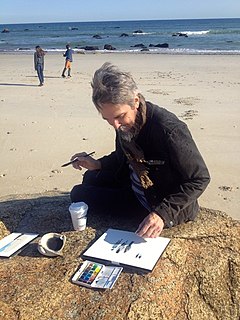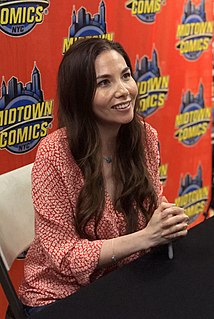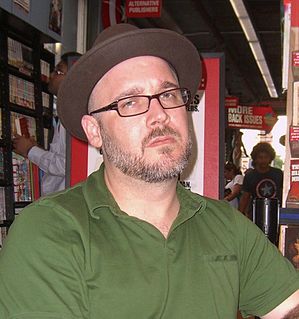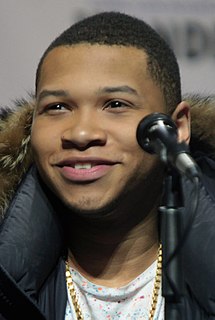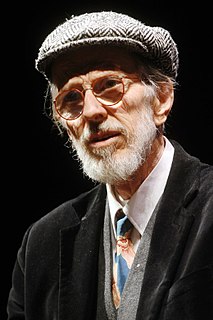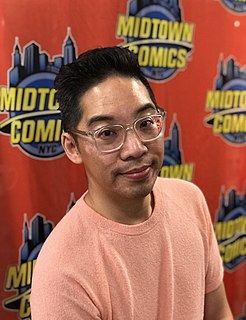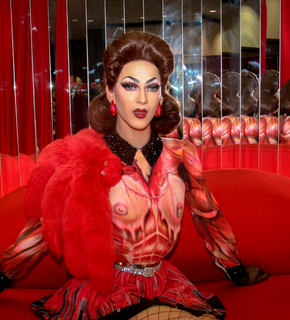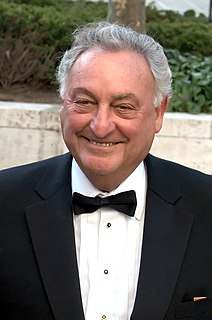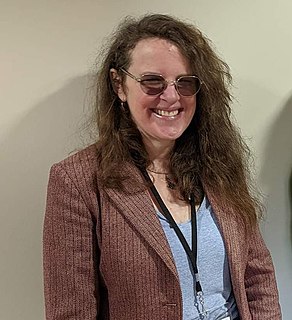A Quote by Jon J Muth
Anything really well-made has the effect of making you want to do what you do-better. Abrams has always made very beautiful books. It's exciting to see this same excellence applied to the presentation of comics. Abrams ComicArts shows comics are stepping out of vaudeville and into Carnegie Hall-but the Marx Brothers will always be welcome!
Related Quotes
When I first learned about Abrams and saw the types of books they were making, I knew I wanted my books to be published by them. Abrams books are special-when you hold one in your hands, you have the feeling that this book needed to be made. I once heard an artist say that books are fetish objects-I think Abrams gets that, because their books demand to be treasured. So who better to give comics art its proper due? I feel privileged to have found a home with Abrams.
I never feel there's anything I can't do with comics. There are certain things in comics that you can't do in any other medium: for instance, in Mister Wonderful, Marshall's narration overlaps the events as they're going on. That would be difficult in film; you could blot speech out with a voiceover, but it wouldn't have the same effect. That's always of interest, to see what new things you can do in comics form.
I've seen a tremendous shift especially in indie comics. I see all these young women who are out there creating. They're making these great web comics. Their graphic novels are getting published. They're making all this wonderful art. They're powerful. There's this vital energy about it that's really, really beautiful that years ago I knew existed but I didn't see so clearly.
I had done a couple TV pilots, and a friend of mine wanted to leave comics and come work in Hollywood, and I said, "Well, you've got to understand that when you sell a TV pilot, imagine if you turned in the best issue of Batman ever, and DC was like, 'Well we love this, but we can't publish it because we have to publish this other thing by this other person." The odds are really long on getting anything made, so if you come from comics and you're still making a living in comics, that really helps because you're not desperate for someone's permission to write for a living.
Changes can be made. New decisions can be made. If people say, 'It's not like that in the comics!' Well, comic books reinvent their characters a lot. They do different things with them all the time. They're always changing, always keeping things fresh. So that shouldn't be an issue if the race changes for a character.
I know I'm a grumpy old man, but I'm always more delighted by readers talking about the actual comics than people talking about how eager they are to have their favorite comics be "elevated" into another medium. Adaptations are great, but for me, comics have always been the destination, not a stepping-stone to get somewhere else.
I had always watched HGTV with my mom when I was very young, we would cuddle and watch interior design shows. I think those TV shows are what made me start thinking about aesthetics in a critical way. I think I could always tell when a person or an item was different or expensive or well designed and that was always exciting to me to see.
In early comics, you see the amazing awkwardness and bizarre reasoning in the storyline, and it's because comics hadn't really been invented yet. There was no format for them to follow. They were just making it up. So I try to incorporate that kind of awkwardness in my comics quite frequently, which is odd. In some ways, I can't be as awkward as I'd like. But I do think that's one way in which my comics are unusual, because I will try to make the artwork look bad, occasionally.
I quit comics because I got completely sick of it. I was drawing comics all the time and didn't have the time or energy to do anything else. That got to me in the end. I never made enough money from comics to be able to take a break and do something else. Now I just can't stand comics. . . . I wish my work would be recognized by a larger crowd of people as more art than be stuck with the cartoonist label for the rest of my life.
